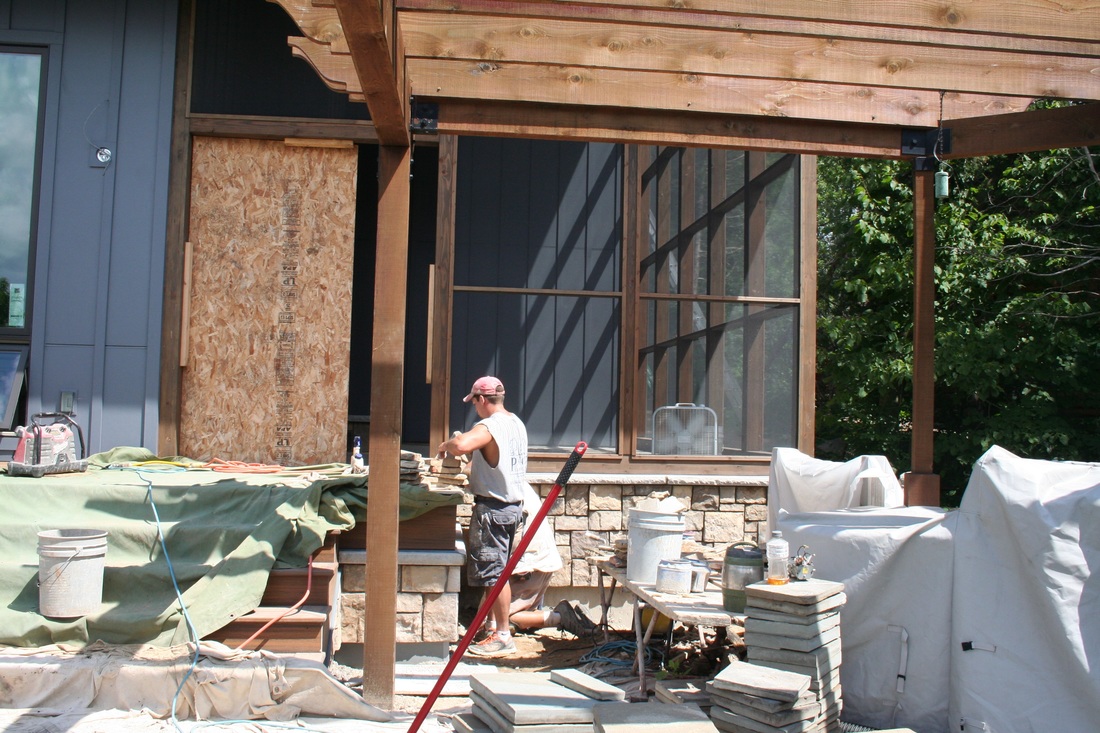You can reasonably expect that they will:
- respond in a timely way to your calls and emails, within a couple of days for non-urgent issues (sooner for urgent issues). But please don’t be excessive about calling or emailing. Keep in mind that the builder is probably working on job sites all day, not sitting in an office waiting for phone calls and emails.
- provide you with a detailed contract that is clear about what is included in the price, what isn’t included and the general terms of the agreement, such as how change orders are handled, what insurance they’ll carry, the warranty on their work, how any disputes will be handled and at what points in the project you’ll be billed for work and materials
- clean up after themselves and leave the job site clean
- provide regular onsite supervision of the work, either by themselves or their appointed superintendent
- let you know when they’ll be on the job site and will be there when they say they will (for additions and remodels)
- build the home according to your architectural plans (after all, that’s why you paid an architect to draw them)
- be up to date on any certifications required by the state
- be insured and provide you with their insurance information
- ask you or your Architect for additional information if anything is unclear on the architectural plans
- finish your project in a timely manner and won’t neglect your project if another, better job comes along
FROM THE HOMEBUILDER'S POINT OF VIEW
Homebuilders sometimes get a bad rap. It’s true that some can be difficult to work with, but it’s helpful to know what they are dealing with.
- Homebuilders are running a business. They have employees who need to be kept busy and paid. They have to deal with the uncertainties of weather and the complexity of juggling multiple subcontractors who have to do their work in a particular order. They’re under pressure to bid a project low so that they’ll get it; at the same time, if they don’t make enough money to pay their employees and pay for materials, they’ll go out of business.
- Ideally they’re out on the job site all day doing or overseeing the work but also have to find time to handle scheduling of subcontractors, paperwork, ordering of materials and communication with homeowners and architects.
- Different types of homebuilders are suited for different types of jobs. At one end of the spectrum are those who are best at working quickly on straightforward, uncomplicated projects. At the other end are craftsman who take pride in building challenging, unusual projects. Choose a builder who’s a good fit for your particular project. The lowest priced builder is not necessarily the best value in the long run.
- If you’re planning to seek bids from multiple homebuilders, limit the number to three. Bidding a project is time-consuming work that the builder generally doesn’t get paid for. Don’t ask a builder for a bid unless there’s a good chance that they’ll get the project; don’t ask a builder for a bid just to check their price against that of other bidders. Thank those bidders who were not selected and let them know right away that they weren’t chosen so that they can find other projects to fill in their schedule. Consider choosing a homebuilder up front and negotiating the price rather than bidding the job.
- Have realistic expectations about how quickly your project can be built. Allow plenty of time. It takes a long time not only to construct a project but also to bid it, line up the subcontractors and get the necessary permits.
- Weather can throw a wrench in the best plans if it is particularly rainy, snowy, hot or cold. Be aware that the weather could delay your project and is out of the homebuilder’s control.
- Make selections (for example, plumbing fixtures, exterior siding colors) in plenty of time; don’t make the builder chase after you for decisions.
- Although some changes are inevitable during a project, try to keep them to a minimum. Changes are easiest and less expensive to make before construction starts. Understand that changes may add extra cost to the project and may also delay construction if they require rework and/or delay downstream work. Changes to one aspect of a project may necessitate other changes.


 RSS Feed
RSS Feed
